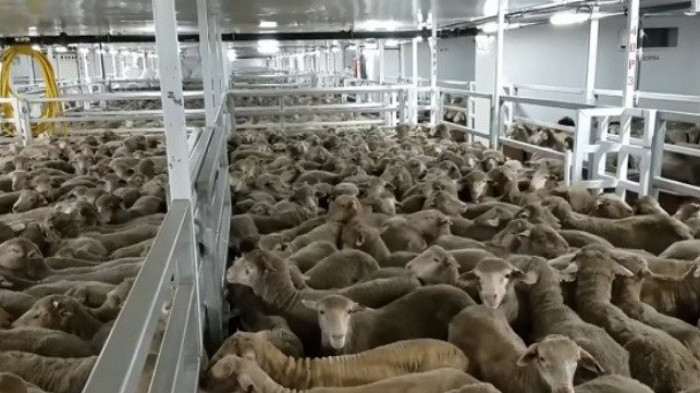Live export ban: ‘Govt gave farmers false hope’
Rowan Schindler
21 April 2021, 5:00 PM
 Waitaki MP Jacqui Dean has taken aim at the Government and says she supports live export of livestock but only under strict health conditions. Photo: File.
Waitaki MP Jacqui Dean has taken aim at the Government and says she supports live export of livestock but only under strict health conditions. Photo: File. National’s Waitaki MP Jacqui Dean has pointed the finger at the Government for failing farmers and says she and her party support life export of livestock.
"We support a trade in live exports but only under strict animal health conditions,” Jacqui says.
"It's disappointing that last year the Government gave famers false hope around the trade continuing to avoid it becoming an election issue.
"It's clear that Labour had no intention of allowing the trade to continue.
"Labour is trying to justify its decision that live exports are contrary to New Zealand's international brand.
"If that is the real reason then Labour should've been up front with farmers about this before the election."
Agriculture Minister Damien O’Connor announced last week that the live export of livestock by sea will cease following a transition period of up to two years.
There have been no livestock exports for slaughter since 2008, but live export for other reasons has been allowed to continue to some extent.
“At the heart of our decision is upholding New Zealand’s reputation for high standards of animal welfare,” Damien O’Connor says.
“We must stay ahead of the curve in a world where animal welfare is under increasing scrutiny.
“This decision will affect some farmers, exporters, and importers and a transition period will enable the sector to adapt.”

The Government will ban live exports of livestock by 2023. Photo: contributed.
Live exports by sea represent approximately 0.2 percent of New Zealand’s primary sector exports revenue since 2015.
“I acknowledge the economic benefit some farmers get from the trade, but I also note that support of it is not universal within the sector.”
Damien O’Connor says the Ministry of Primary Industries (MPI) review of live exports, which started in 2019, identified mixed perceptions of the activity.
“There is split opinion about its long-term value and how it fits with the story we want to tell internationally to consumers.
“In its review submission, the independent National Animal Welfare Advisory Committee (NAWAC), which advises ministers on animal welfare issues, advised that the practice should stop.”
Damien O’Connor says improvements had been made to the practice over recent years, but despite everyone’s best efforts, the voyage times to our northern hemisphere markets will always pose animal welfare challenges. (Continue reading below)
Advertisement
Damien O’Connor says officials had spoken to key trading partners about the decision.
“I recognise the importance of our trade relationships with our international partners and we’re committed to working with them as we transition away from the shipment of livestock.
“New Zealand has an opportunity to boost trade through our cutting-edge scientific work into dairy cow genetics and germplasm use.”
“During the transition period, exporters will meet the extra requirements that we introduced following the independent Heron report, which was carried out after the tragic loss of the Gulf Livestock 1 in September 2020.
“I’ve asked MPI to provide further advice on improvements to animal welfare during the phase out.
“I want to thank all of those who took part in the wider review. The Government is committed to high animal welfare standards,” Damien O’Connor says.



